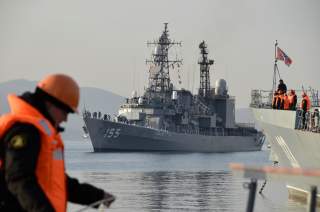The Politics of Russia's Primorsky Krai
Sitting nearly four thousand miles away from Moscow, Russia's eastern region of Primorsky Krai thinks and acts differently than its western countrymen.
However, U.S. sanctions on North Korea have affected the livelihoods of several North Korean migrant laborers, and Alexander Efremov, CEO of Dobroflot, a large fishing company, says he has had to let go of a lot of his migrant workforce. His quota of Chinese workers too has been reduced. Efremov foresees these geopolitical tensions having headwinds for the fisheries, a prominent industry in the region.
Apart from fisheries and the naval base, its tourism, transport and logistics, trade and agriculture that are the revenue generators for the Primorsky Krai coffers. Fishing and fisheries are integral to Primorsky Krai, so much so that at the Department of International Cooperation, Starichkov confidently states that “Muscovites are mainland people—The culture of eating fish and fishing isn’t even there,” accentuating regional heterogeneity.
“Moscow doesn’t understand the Vladivostok region,” says one of my colleagues at FEFU, a university whose international relations program specializes in understanding its Asian neighborhood. As we strolled through the streets of Vladivostok, past Yul Brynner’s childhood home, we reach the train station.
“Is this where the vaunted Trans-Siberian train ends?” I ask the local tour guide. “Actually, we, the local residents, would like to think that this is where the Trans-Siberian starts. After all, the sun does rise in the east!”
Akshobh Giridharadas is a former broadcast reporter covering business and international relations with Channel NewsAsia in Singapore. He has regularly published with outlets such as The Diplomat, the Observer Research Foundation, Inside Sources, and FirstPost on geopolitics, business and sports.
Image: Reuters

